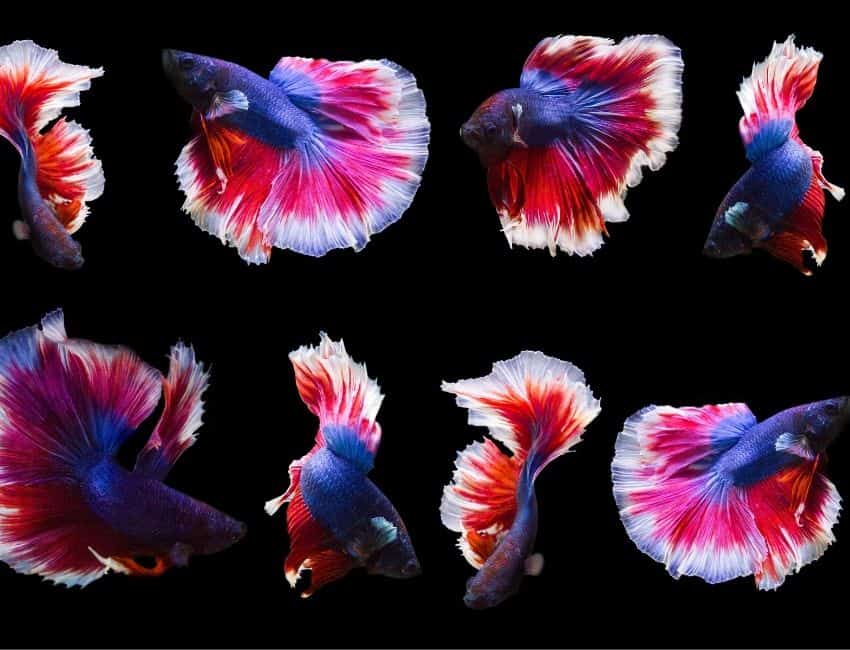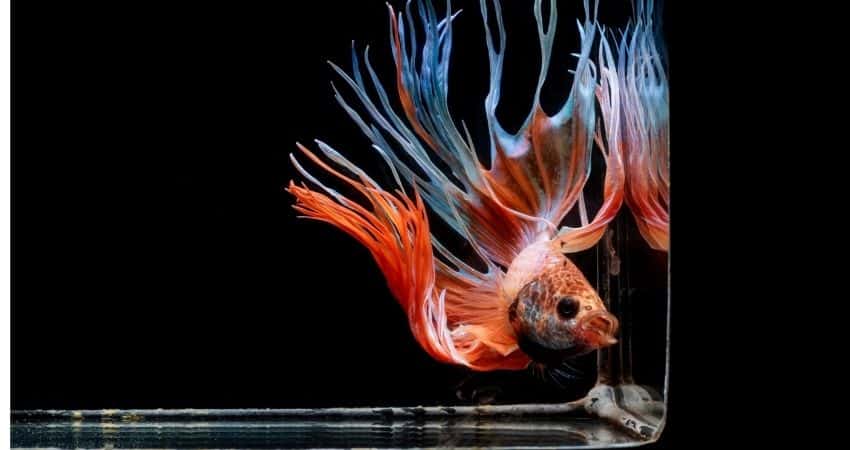In this article Show
Betta fish are among the most popular pets for aquarists, thanks to their vibrant colors and unique personalities. However, there’s more to betta fish care than meets the eye, particularly when it comes to their sleep habits.
A common question that arises among betta fish owners is, “Do Betta Fish Need Darkness to Sleep?” This article aims to shed light on this topic, offering insights based on both experience and research. We’ll explore the sleep patterns of betta fish, the role of darkness in their rest, and how you can create an ideal environment to ensure your finned friend gets the rest it needs.
Do Betta Fish Need Darkness to Sleep?
Yes, betta fish do need darkness to sleep effectively. Like many creatures, betta fish, follow a natural circadian rhythm that requires periods of light and darkness to regulate their sleep cycle. Providing a dark, tranquil environment at night helps these popular aquarium pets to rest better, ensuring their overall health and well-being. This practice closely mimics their natural habitat conditions, supporting a healthy sleep pattern which is crucial for maintaining their vibrant colors and active behavior.
Also worth reading;
- Can Betta Fish See In The Dark?
- 7 Best Betta Fish Tanks – Review & Buying Guide
- How Often Should You Feed Your Betta Fish?
Do Betta Fish Sleep?
Yes, betta fish do sleep, and understanding their sleeping habits is a crucial aspect of their care. Unlike humans, betta fish don’t have eyelids, so their sleep might not be immediately obvious. However, they exhibit certain behaviors that indicate they are resting or sleeping.
Typically, a sleeping betta fish will find a comfortable spot in the aquarium, often at the bottom or on a leaf, and remain still. They might also choose to rest in a sheltered spot or hideaway to feel secure.
Betta fish follow a diurnal sleep pattern, meaning they are active during the day and sleep at night. Their sleeping patterns can be influenced by the lighting and environment in their tank. It’s important for betta fish owners to observe these patterns, as changes in sleeping behavior can indicate health issues or stress.
Consistent, restful sleep is essential for their well-being, impacting their mood, color vibrancy, and overall health.
To support their sleep, maintaining a calm, stable environment in the aquarium is key. This includes ensuring a consistent light/dark cycle, providing hiding spots for security, and maintaining the ideal water temperature. A betta fish that sleeps well is a sign of a healthy, well-cared-for pet.

Creating an Ideal Sleep Environment for Betta Fish
To ensure your betta fish enjoys a healthy sleep, it’s essential to create an environment in your aquarium that mimics their natural habitat as closely as possible. Here’s how you can do this:
Ideal Tank Conditions for Promoting Healthy Sleep
Temperature
Betta fish thrive in warm water, so maintain a consistent temperature between 76-81°F (24-27°C). Use an aquarium heater to keep the water temperature stable, as fluctuations can stress your fish and disrupt their sleep.
Plants and Hiding Spots
Include live or silk plants and decor to provide hiding spots. Betta fish need these areas to feel secure and to rest. Plants like Anubias or Java Fern create a natural, soothing environment.
Calm Environment
Avoid placing the tank in noisy or high-traffic areas. Excessive noise and disturbance can stress betta fish, affecting their sleep.
Importance of a Consistent Light/Dark Cycle in the Aquarium
Betta fish are diurnal, meaning they are active during the day and rest at night.
A consistent light/dark cycle mimics the natural day/night rhythm, crucial for their biological clock. Aim for about 12 hours of light and 12 hours of darkness. Use an aquarium light with a timer to regulate this cycle automatically, ensuring consistency even when you’re not around.

Tips on Managing Light in Your Betta Fish Tank
- Avoid Direct Sunlight: Place the aquarium in a spot where it won’t receive direct sunlight, which can cause temperature fluctuations and algae growth.
- Use Appropriate Lighting: Opt for LED aquarium lights that don’t emit too much heat and can be adjusted for intensity.
- Gradual Transitions: When turning lights on or off, do it gradually to avoid startling your betta. This can be achieved with a dimmer or by using room lights before the tank lights.
- Nighttime Darkness: Ensure the room where the tank is located is dark at night. If necessary, use blackout curtains to block external light sources like streetlights.
By paying attention to these factors, you can create a peaceful and healthy environment for your betta fish, promoting restful sleep and overall well-being. Remember, a well-rested betta is a happy, vibrant, and active pet.










